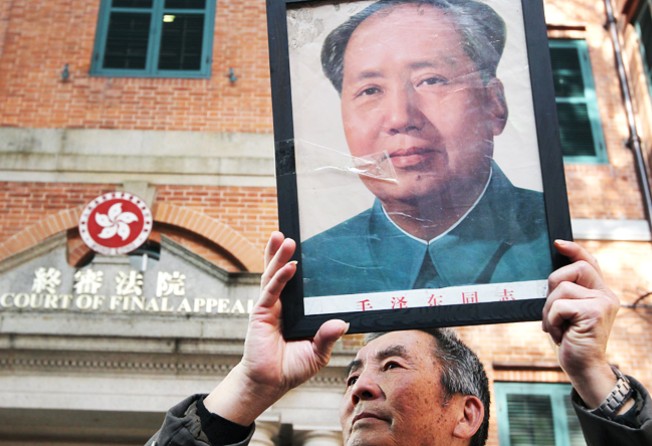15 years on, landmark court ruling on right of abode still reverberates
Cliff Buddle says the years have proved, since the 1999 right of abode ruling, that our rights can be protected under the Basic Law

This week marks the 15th anniversary of the most significant ruling by a Hong Kong court in modern times. The Court of Final Appeal's judgment in the case of Ng Ka-ling and others, delivered on January 29, 1999, is best remembered for the turbulent events it set in motion. The impact of the ruling and its aftermath are still being felt today.
This case concerning the right of abode came at a time when Hong Kong was still getting to grips with the new constitutional arrangements put in place when the city returned to China in 1997.
It was the first time the top court had been asked to interpret the Basic Law. The judges ruled against the government and swept away restrictions preventing mainland-born children with a Hong Kong parent from living in the city.
Fearing an influx, Tung Chee-hwa's administration sought help from the central government. Key parts of the judgment were overturned the following June when the National People's Congress Standing Committee issued its own, different, interpretation of the Basic Law.
The five months between the court ruling and the interpretation were both dramatic - and traumatic. The court had not confined its ruling strictly to the right of abode. It also tackled broader constitutional issues, boldly stating that it had the power to declare acts of the NPC and its Standing Committee invalid if they breached the Basic Law.
This prompted mainland legal experts to attack the court and accuse it of trying to usurp the power of Beijing. Meanwhile, concerns were raised that the interpretation by the NPC Standing Committee would undermine the rule of law. Lawyers staged a protest march and the judges considered resigning. The new constitutional arrangements appeared to be unravelling.
Thankfully, the rule of law has survived and so has the Court of Final Appeal. But neither was left unscathed. The top court initially appeared to be cowed by the undermining of its authority, especially when ruling later that year that the Standing Committee has an unlimited power to deliver interpretations of the Basic Law which are binding on Hong Kong courts.
But when the crisis finally passed, it seemed to quickly gain confidence, ruling against the government in another sensitive right-of-abode case in 2001. This time, the decision was allowed to stand.
Over the years, the desire to avoid a similar controversy appears to have led to an understanding that the Standing Committee will not issue interpretations of the Basic Law after the court has ruled. It is not easy, however, to put the genie back in the bottle. The threat remains whenever the courts consider cases involving the Basic Law.
The Basic Law gives Hong Kong courts the power to interpret - on their own - parts of the constitution which fall within the city's autonomy when deciding cases. That provision should be respected and our judges left to get on with the job.
Meanwhile, the Ng Ka-ling judgment should not be forgotten. For all the controversy it caused, this was a genuine attempt at an early stage in the new constitutional era to ensure that the rights provided by the Basic Law would be upheld - and could be protected by Hong Kong judges.
Cliff Buddle is the Post's editor, special projects